Did you know that, on average, 51% of companies are currently using marketing automation, and more than half of B2B companies (58%) plan to adopt the technology? The statistic may be mind-boggling, but it is very much justified. Companies and marketers are always in search of ways that make things easy and convenient for them. Automating the daily repetitive tasks is definitely at the top of the list of making things effortless.
How can offering 24*7 customer service be automated? Is it possible? If yes, then how? Are there any obstacles to automation? Analyzing and segregating tasks that need a human touch, which do not automate, can be tricky. Here is where a proper marketing automation strategy is required, but before diving in deep waters, let us brief ourselves with the basics.
Marketing Automation Theory
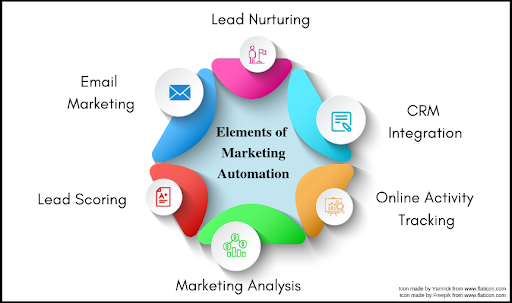
Marketing automation is actually an integral part of “customer relationship management.” Defining, segmenting, tracking and personalizing marketing campaigns is the core of customer relationship management. This gives us an idea of how closely marketing automation and customer service are linked.
The idea behind using marketing automation is to increase the efficiency of the regular repetitive tasks which are a part of your marketing campaigns. Automating tasks that would otherwise be performed manually gives you the extra traction on your marketing efforts. It also allows you to market more effectively on different channels such as email, websites, social media, etc.
What is a Marketing Automation Platform?
Marketing automation platforms can be defined as tools or software which allow marketers to create, implement, and automate marketing workflows for multiple channels from a single source. They ease out understanding customer behavior and panning out marketing strategies accordingly.
Marketing automation platforms are used to carry out some key tasks which include lead scoring, lead management, lead generation, converting leads to customers, managing and analyzing marketing campaigns.
Replacing the manual workload with automated solutions is what a marketing automation platform delivers. Tips to automate your marketing are brought to life and implemented here.
When it comes to customer service, marketing automation services and marketing automation platforms have a big role to play. These platforms make sure that the customers are satisfied and they have a joyful ride in the buyer journey as well.
Having said that, you may want to have a look at some of the best customer service automation platforms by Bloominari.
Relation Between CRM and Customer Service
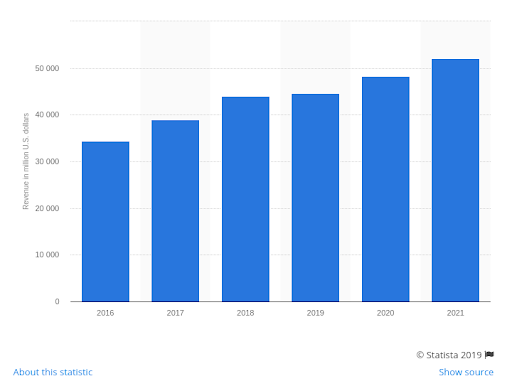
To serve customers with excellence requires dedicated efforts. To bridge the gap between your customers and your brand, you need to step into the customer’s shoes. After understanding their needs, you need to act.
In the past, we used to jot everything down. From reminding customers about offers to making them aware of their purchases, we were dependent on pen and paper. Though the method is still useful, it became obsolete over time.
Businesses suffered great losses, and competitors took advantage because their systems were not able to cope up with the changing customer behaviors. The long-term customers shifted their focus to other companies who could study and anticipate their needs better. Where did these other companies take the edge?
They used automated marketing and marketing platforms to good effect. Analyzing consumer behavior and presenting the consumers with what they needed before they could even guess.
How Marketing Automation Helps You Serve Customers Better
We will take a more practical approach to understand this. Say you sold your customer a software package with 6 months of support. Now, automation steps in:
- Recommending other related products to the customer
- Reminding the customer when his license and support expires
- Software update notifications
- If the customer changes his framework in the future, suggesting other software
On top of this, over the course of 6 months, answering customer queries and doubts can also be automated. Nowadays, automated messages on social media have made life easier for marketers.
Customers like to engage on social media and find it relatively easy to connect with businesses there. For 45% of consumers, social media is one of the first channels they go to in case they have any questions or issues.
All of the above may not have been possible 30 years ago but is definitely a doable thing now.
Marketing Automation Boosts Customer Satisfaction
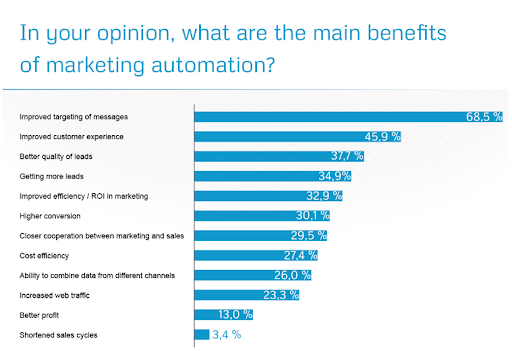
Anticipation is the key here. Excellent customer service is one where the company reaches out to the customer beforehand. When this happens, the customer feels elated. They will then shower more love on your business. But how do I know which customer wants what and when?
Data and anticipation.
There is a big difference between assumption and anticipation. We need to focus on the latter. When you have consumer data, you can work wonders with it. You need to make sure that all your working departments are on the same page.
For example:
Your sales team has the expiration dates of all the software packages sold out. This data can be shared with the customer service team. The service team can then use this data to serve the customer better.
The more we engage with our customers, the more they feel connected with us. Connection makes the customer more comfortable when dealing with businesses. With automation, you engage more and satisfy more with more efficiency as well. Ecommerce businesses should take full leverage of marketing automation in customer service and get fruitful results.
Common Customer Pain Points With Their Automated Solutions
Marketing automation is a must-have for modern marketing teams because understanding customer behavior and the issues they face is not a piece of cake. Even if you are aware of their pain points, solving them takes time and effort.
What do we have here with us? Marketing automation. Will it help? Certainly.
Here is how marketing automation can ease out the complications in common customer issues.
Pain Point #1: “I am not interested in the regular emails your company pitches me. I am blocking you!”
An increased email bounce rate and customers not even bothering to open your emails can hurt a lot. Customers that have no interest in the subject — trash the emails or they end up in spam.
Resolution: With customer segmentation in marketing automation, you have a head start. You already know what interests your prospects have, and what are they fond of.
Now, you can prepare customized emails to send to your clients.
The customized emails will increase your email open rates, clicks, and conversions. You will take better care of your customers by not spamming them with content they don’t want.
Pain Point #2: “There has not been any follow-up, even after contacting you for a new purchase. Are you neglecting me?”
There are so many options available for customers. If you miss out on the opportunity of converting a lead(especially when they have approached you first), you are doomed. They will find some better alternatives.
Resolution: Real-time customer tracking and behavior study have become a lot easier with marketing automation. The top pages they visit, the sections they browse the most, and the products they are interested in the most are all invaluable insights.
Automatic prioritization of customer support requests helps in solving issues in a suitable timespan. Quick notifications allow you to follow up instantly.
Pain Point #3: “I have an issue with your product and need assistance, but nobody is responding to my request.”
If you fail to answer the post-purchase queries, it dents your company’s reputation.
Putting a ding in your company’s reputation should be avoided at all costs, or else you will lose out on a lot of revenue.
Resolution: Effective communication between its team members is the key to any business. If you get a question which you don’t have an answer to, you should be able to connect the customer with someone who can help.
Be it any platform; communication is the key to satisfying the customer. Marketing automation helps in a quicker response rate and better assistance by automatically routing the support chats, calls, etc. to the right person.
All this will let you provide an amazing customer experience to your users.
How to Design a Marketing Automation Strategy for Customer Retention
Crafting out and deploying a marketing strategy that works is easier said than done. Converting prospects into potential customers and making loyal customers into brand advocates is a big deal. Expectations of marketing automation are increasing day by day.
But here is the kicker: If we are prepared to take on the challenge, we can surely succeed.
Below are some considerable marketing automation ideas for your marketing automation strategy:
Personalize the Interaction
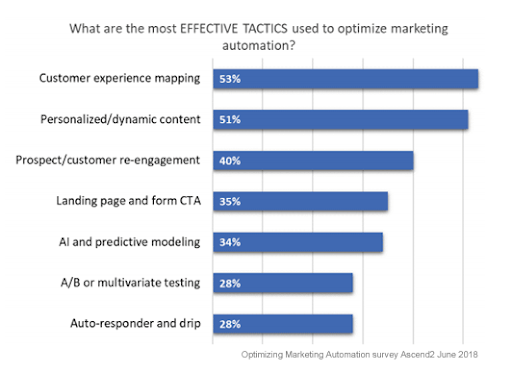
Whenever we talk about connecting with our audience, personalization is vital. Everyone likes content and products crafted for them exclusively. When they get it, they feel elated. Even if we call someone by their name, they feel more valued and respected.
Consumer data is like gold dust and should be used wisely. When we have insights with us, we can use it to good effect.
There are proven ways which you can use to personalize your automated marketing campaigns:
- Super personalized homepage for your users
- Segmentation of customers and segmented campaigns
- Personalized email marketing with fresh content
Every marketing strategy must include personalization as its core. The results will follow.
Offer Incentives and Discounts
Everyone likes surprises, and your customers are no different. Presenting lucrative offers can do the trick more often than not. You may offer your loyal customers extra benefits and discounts. Benefits are expected and will kill two birds with one stone.
Firstly, they will feel valued and secondly, they will buy more from you. It’s a win-win situation.
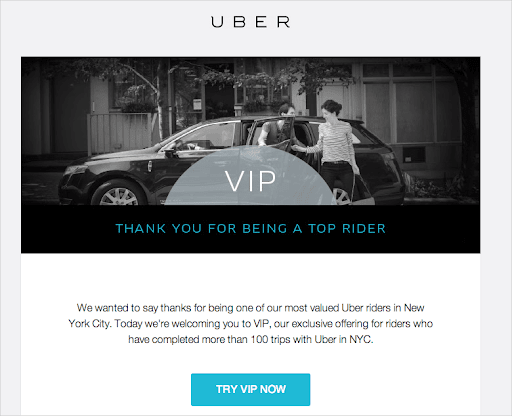
The above example is a perfect illustration of the tactic that we discussed. Marketers need to understand the significance of incentives and offers. Marketing automation can also help brands make a name for themselves during the festive season. It is just one of the many benefits that marketing automation has on offer.
Automated incentives might be the missing piece of your marketing puzzle. Incentives will bring additional customers.
Re-Engagement and Encouraging Repeat Purchases
Closing out deals and selling products is not the end of the story. It is the beginning of a new story. Compelling your customers to keep coming back should be prioritized.
Established buyers make up 40% revenue for an eCommerce Store – Adobe Study.
As compared to acquiring new customers, re-engaging existing customers is an easier task. Marketing automation helps you in doing that.
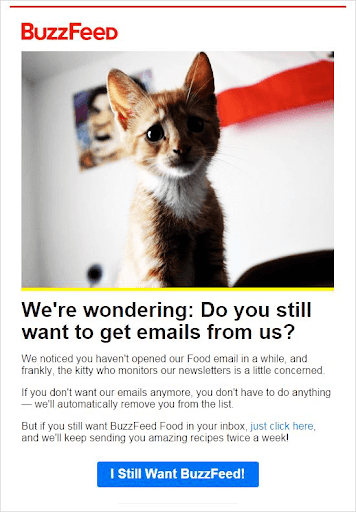
Asking customers to buy more and encouraging repeat purchases is an excellent sale-booster. With marketing automation at your service, this is a must-try tactic and should be a part of your strategy.
Upsell and Cross-Sell
What is upselling?
Asking your customers to buy a comparatively better and costlier product along with the one they are interested in is called upselling.
What is cross-selling?
The practice of suggesting complementary and related products to the customers is known as cross-selling.
A sound marketing automation strategy will always incorporate upselling and cross-selling.
A marketing automation platform and lots of consumer data will allow you to both cross-sell and upsell. Shooting customized messages to your buyers regarding upsells and cross-sell can be done efficiently using marketing automation.
With marketing automation, you can extract extra value from your customers and push them to spend more.

Another one:

A/B Test
A/B Testing is indispensable for any marketing tactic we implement. When we A/B test our efforts, we know what is working for us and what is not.
What is A/B Testing?
Using and comparing two variants of an entity (like webpage, ad, application) to check which one performs better is known as A/B Testing.
Understanding the performances of both the variants one by one will make sure we opt for the right choice.
The understanding can be achieved by statistical analysis of consumer data.
Here is an example from Microsoft:

Variant 1

Variant 2
Marketing automation can easily and quickly help you set up multiple tests and can automatically administer those tests so you can focus your attention wherever else it is needed. You can maximize your response rate and test elements on multiple campaigns simultaneously, saving you time.
You will quickly be able to draw out the best combination which works for you. From the results obtained, you can also look at a few landing page examples. Choose the best and optimize the rest.
Quiz Yourself Before Planning a Strategy
Not everything you discuss or read about will work for you. Nobody knows your business better than you. You will need to ask yourselves some questions before panning out a strategy. Discuss it with your team members, gain feedback, check your highs and lows, and then move forward.
If you don’t have much experience with automation, it would be better to go easy and slow. If you have a lot of experience in the field, you will have to carve out new ways to serve the customer better and explore other dimensions of the strategy.
Few questions you need to ask yourself “right now” about automating your efforts:
-
What should I automate, and I shouldn’t?
Big one. Simply automating your social media responses is not advised. And even if you do it, be cautious. Users on social media can behave in various ways, and your bots need to be intelligent to handle them.
The emails that you automate must also be checked once in a while and refreshed. You need to be sure about what needs a human touch.
2. How can I serve customers better with marketing automation?
This one needs a lot of attention as well. If you can serve your customers well, all other woes won’t count. Following up with clients, routing support chats to experts, post-purchase queries, sending reminders and promotions to loyal customers, etc. should be automated, but with care.
You should know your customers well and serve them accordingly.
3. What will I do to track my efforts?
You should have a clear-cut idea of how to answer this. You should prioritize your area of importance and then work on the same. Even if you run a single email marketing campaign, you should be able to track it.
Did it work? To how much extent? Impact on your business objectives? Answer every question. Accumulate satisfactory answers. Then proceed further.
Conclusion
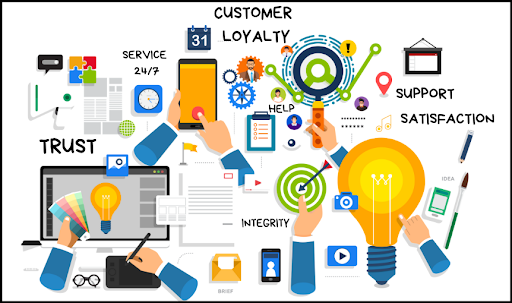
Marketing automation may come across as intimidating but isn’t. Marketers around the world need to understand this and explore automation. The sooner they do it, the better it will be. Ecommerce marketing automation is being used neatly to increase profits and conversions.
No one can know each and everything about you. Brands nowadays use marketing automation software and integrations smartly to study your behavior and suggest things accordingly. We may be missing out on a lot, which can be achieved through marketing automation.
Our toughest problem may easily be solved via marketing automation.
Our biggest weakness may become our greatest strength. We at least need to try. The goal is to connect with the audience base in more engaging ways and automation does just that. Going past the barriers of implementing marketing automation should be prioritized.
So, in case you have not included marketing automation in your marketing strategy yet, it’s high time that you do so. It is not only for marketing, and sales but also for customer service.


















